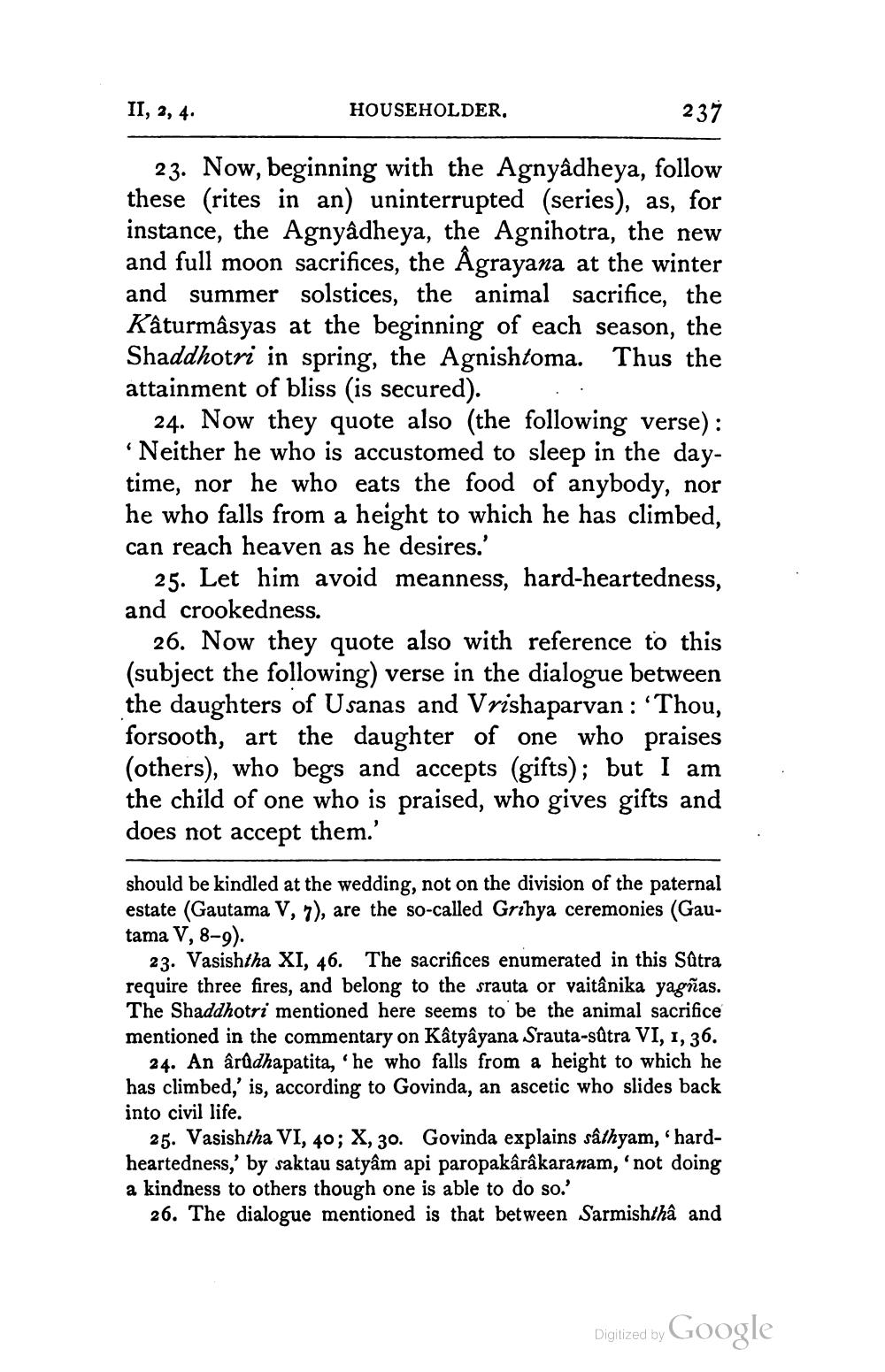________________
II, 2, 4.
HOUSEHOLDER,
237
23. Now, beginning with the Agnyâdheya, follow these (rites in an) uninterrupted (series), as, for instance, the Agnyâdheya, the Agnihotra, the new and full moon sacrifices, the Âgrayana at the winter and summer solstices, the animal sacrifice, the Kâturmâsyas at the beginning of each season, the Shaddhotri in spring, the Agnishtoma. Thus the attainment of bliss (is secured). ..
24. Now they quote also (the following verse): Neither he who is accustomed to sleep in the daytime, nor he who eats the food of anybody, nor he who falls from a height to which he has climbed, can reach heaven as he desires.'
25. Let him avoid meanness, hard-heartedness, and crookedness.
26. Now they quote also with reference to this (subject the following) verse in the dialogue between the daughters of Usanas and Vrishaparvan : ‘Thou, forsooth, art the daughter of one who praises (others), who begs and accepts (gifts); but I am the child of one who is praised, who gives gifts and does not accept them.'
should be kindled at the wedding, not on the division of the paternal estate (Gautama V, 7), are the so-called Grihya ceremonies (Gautama V, 8-9).
23. Vasishtha XI, 46. The sacrifices enumerated in this Satra require three fires, and belong to the srauta or vaitânika yagñas. The Shaddhotri mentioned here seems to be the animal sacrifice mentioned in the commentary on Kâtyâyana Srauta-sútra VI, 1, 36.
24. An arddhapatita, 'he who falls from a height to which he has climbed,' is, according to Govinda, an ascetic who slides back into civil life.
25. Vasishtha VI, 40; X, 30. Govinda explains sâlhyam, 'hardheartedness,' by saktau satyam api paropakârâkaranam, 'not doing a kindness to others though one is able to do so.'
26. The dialogue mentioned is that between Sarmishtha and
Digitized by Google




